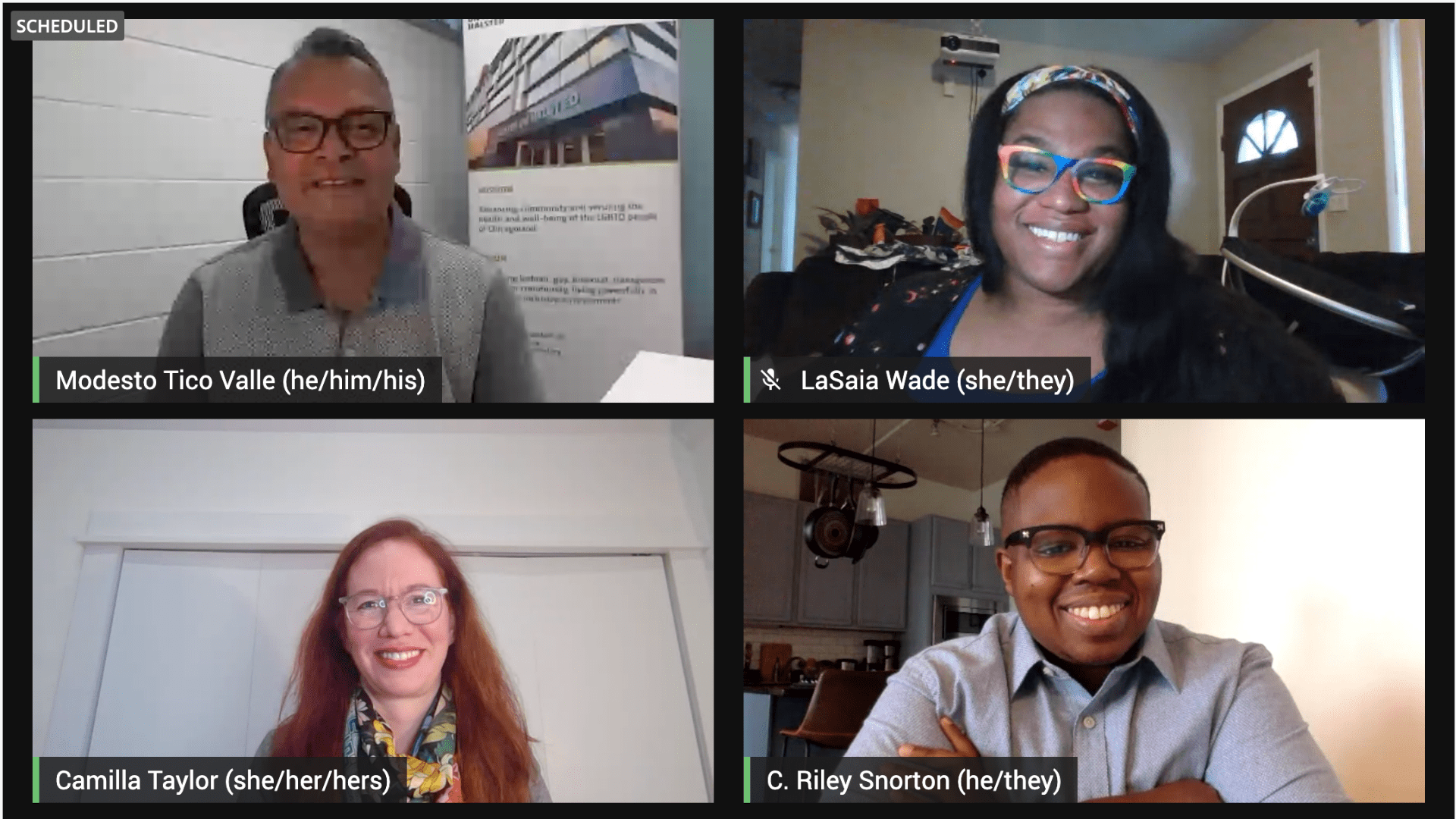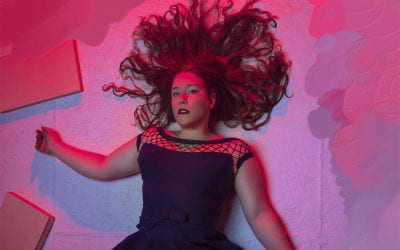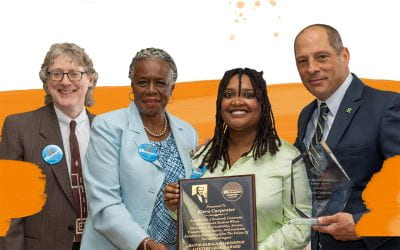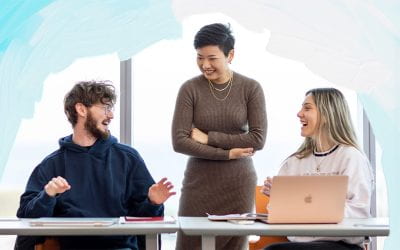The Struggle Continues: The Fight for LGBTQ+ Rights
American Dream Reconsidered ConferenceThe Struggle Continues panel gathered Chicago activists from three prominent nonprofits to discuss queer and trans liberation, past and present.
Moderator C. Riley Snorton, a professor at University of Chicago, is a cultural theorist who analyzes representations of race and gender throughout history. He opened up the conversation by asking about the context of the panelists’ work today, and what challenges them or gives them hope.
Modesto Tico Valle talked about the difficulties of running a community center in the midst of a pandemic that mandates social distancing and separation. Valle is the chief executive officer of Center on Halsted, the most comprehensive community center in the Midwest, dedicated to advancing community and securing the health and well-being of the LGBTQ+ community in Chicago.
Without affordable housing or employment, Valle says, many of the people the Center serves don’t have the option to safely shelter in place.
“There’s finally hope for systemic change, and I think this time, we’re going to see it.”
— Modesto Tico Valle

“When we see the civil unrest in our city and we also are confronted with an unstable administration in the White House, we often forget the people that are the most marginalized are not afforded the opportunities of equity and inclusiveness,” he said.
As director of constitutional litigation for Lambda Legal, Camilla Taylor spearheads the group’s litigation challenging the Trump/Pence administration’s assault on LGBT rights. She noted the parallels between Roosevelt University’s founding of “radical inclusion and bravery” and the modern LGBT movement, which grew from a group of “trans women of color fighting police misconduct and oppression” when their very existence was criminalized.
“I do think there’s reasons to be hopeful in part because of the resilience of this community, and the fact that this community survived the crucible of an epidemic of its own.”
— Camilla Taylor
Snorton asked panelists to reflect on the current landscape for trans and gender non-conforming folks, in a time of landmark workplace protections and continued grief for what he called the “premature deaths” of many Black and Brown trans people.
“It’s a hard subject,” said LaSaia Wade, the founder and director of the Brave Space Alliance. Described as the first “Black-led trans-led LGBTQ Center located on the South Side of Chicago,” Brave Space Alliance is “designed to create and provide affirming and culturally competent services for the entire LGBTQ community of Chicago.” As a community leader, Wade has lost several young people each week over the summer.
“Some people think visibility is wonderful,” she said, “and then you have other people who say visibility is death, in particular ways, and it can be.”
All of the panelists talked about education as a necessary tool in the movement’s future. The four spoke with optimism about the current movement and the work of the next generation to make queer and trans liberation a reality.
“The future is not what I perceive it’s going to be, it’s what the youth will turn it into,” said Wade. “I’m just here to help them lead it.”
The American Dream Reconsidered is a free conference that invites scholars, activists and leaders to explore the modern American dream. Sessions delve into immigration, health care, politics and more in America today. With optimism and hope, our panelists share visions for the future of our democracy.
More in this section
Opera’s leading role in transforming gender identity in the arts
Lucia Lucas is a force—both on stage and off. In April, Lucia made history during her debut at the Lyric Opera of Chicago as the first openly transgender person to perform there in a leading role.
Deserving of a truly special honor
Friends of Roosevelt recently gathered to recognize Kiera Carpenter, an aspiring environmental professional, as the inaugural recipient of the Mayor Harold Washington Legacy Scholarship.
In and beyond the multicultural classroom
Professor Yue Li helps students to not only recognize and embrace culture differences, but to see social hierarchies that create privilege and oppression.



